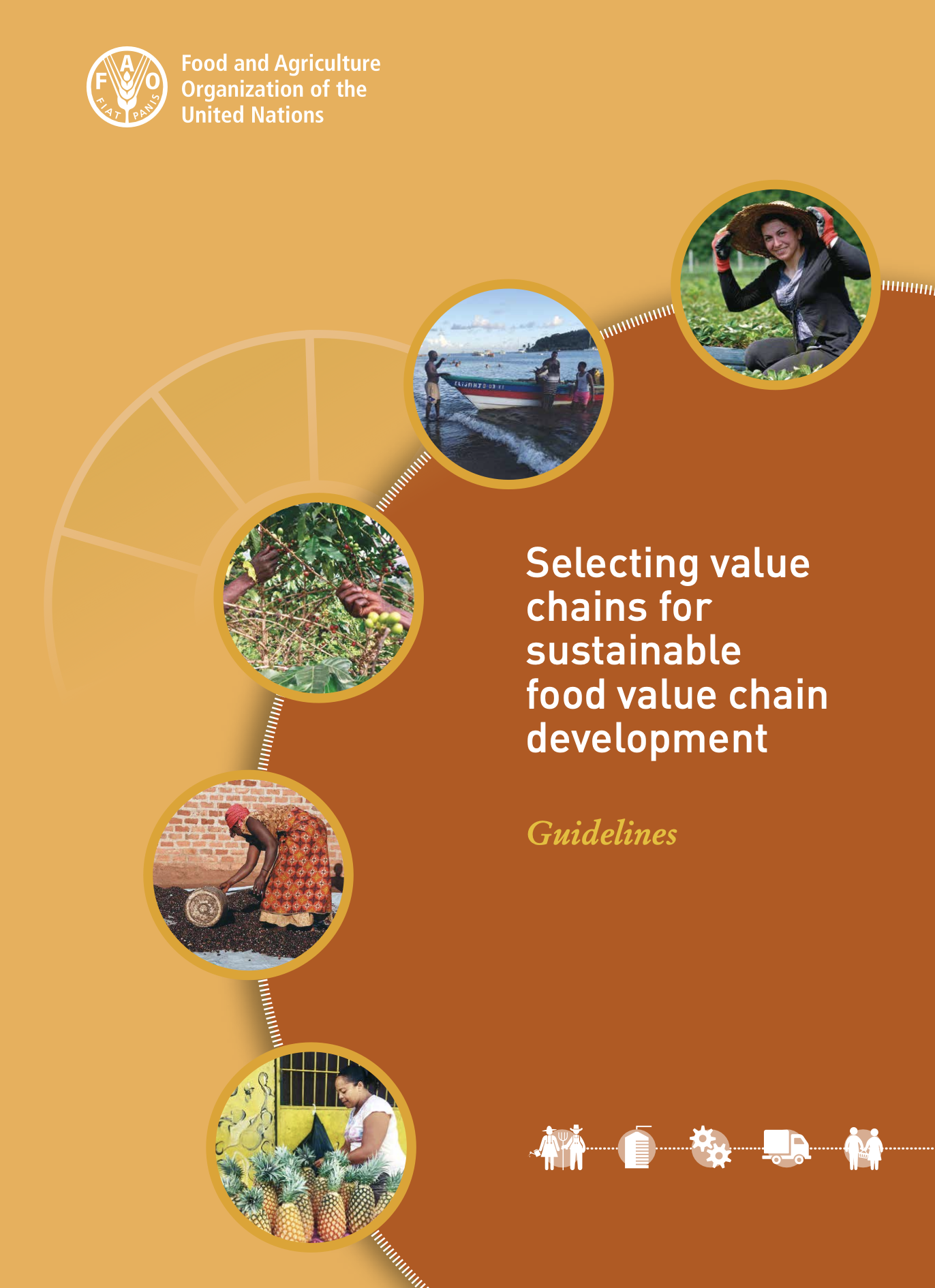Selecting Value Chains for Sustainable Food Value Chain Development: Guidelines
Value chain selection is an important initial step in value chain development; it aims to identify the value chain(s) most suitable for upgrading, based on their potential to achieve the Sustainable Development Goals. These guidelines have been prepared to provide a more structured, participatory and objective approach to value chain selection. It primarily targets development practitioners, including international organizations, non-governmental organizations (NGOs), regional bodies or national governments seeking to achieve certain objectives through agrifood value chain development projects.
The publication has five sections. First, it provides the rationale and key differences between this publication and others on value chain selection. Second, it presents the key principles for value chain selection, focusing particularly on stakeholder engagement. Third, the step-by-step process for value chain selection is explained. Fourth, a series of practical case studies is presented. The guide concludes with closing remarks and recommendations.
The publication proposes a step-by-step process that guides the user in assessing, comparing and selecting value chains. The six steps are to: 1) customize the tools based on identified project goals; 2) generate a longlist of proposed value chains; 3) conduct a shortlisting exercise; 4) collect data on the shortlisted value chains; 5) score the shortlisted value chains; and 6) finalize the selection and inform stakeholders. Following these six steps, and applying the principles presented herein, can help in applying a more rigorous and objective process for value chain selection. This approach is participatory, evidence-based, adaptable and sustainability-focused. It aims to aid in the selection of value chains that are most likely to generate the desired impacts, based on the level of feasibility and impact along the triple bottom line of sustainability (economic, social, environmental).
